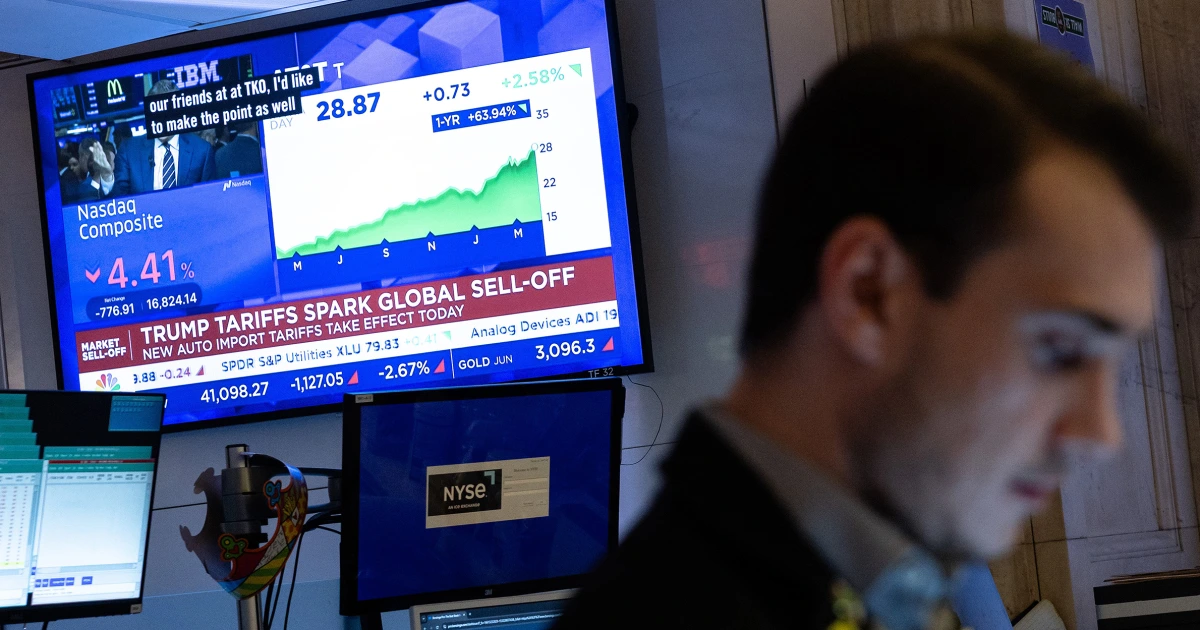Major sell-offs in markets across the globe preceded the U.S. declines. European stocks veered toward a correction, having now declined 10% from recent highs. Asian markets also cratered.
Declines hit other markets, as well. The yield on the 10-year Treasury bond fell under 4%. While that will translate to lower mortgage rates, it reflects investors’ jitters about the economy as they trade out of the risks of stocks and into the safety of bonds.
Crude oil also slipped, falling nearly 8% to $61.71, indicating a fear that fuel consumption will fall as consumers pull back on spending.
The drawdowns represent a stunning turn of events for a presidential administration that was expected to have “business friendly” policies at its foundation. Instead, Trump is betting that the tariffs will force businesses to relocate manufacturing and production to U.S. shores — an outcome most business leaders and economists say is virtually impossible to achieve at the scale Trump desires and will instead lead to calamity.
Early Friday, China announced it was imposing duties on goods brought in from the U.S. of 34% in response to Trump raising the cost to U.S.-based firms of importing goods from China by as much as 79%.
While some hold out hope Trump is using the tariffs as a negotiating tactic, the prospect of at least near-term economic disruption now appears all but certain.
And Trump has continued to strike a defiant tone in response to the market turmoil and criticism from global leaders.
“MY POLICIES WILL NEVER CHANGE,” Trump posted to social media Friday.
Many on Wall Street are forecasting major economic disruption. Dan Ives, an analyst with Wedbush Securities financial group, wrote in a note Friday morning that Trump’s tariffs shock will lead to “economic Armageddon” if not dialed back.
“Never have we … seen a self-inflicted debacle of epic proportions like the Trump tariff slate over the last 36 hours,” he wrote.
JPMorgan analysts published a research note, titled “There will be blood,” saying they raised the odds of a global recession to 60% in response to Trump’s tariffs shock.
“A turn towards caution by households alongside a slide in business spending could well push the economy into recession next quarter,” the bank’s analysts wrote.
Even before Wednesday’s announcement, the uncertainty surrounding Trump’s policies had already caused business and consumer sentiment to plummet. The lingering questions about how long the new tariffs will stay in place are exacerbating fears of a dramatic slowdown.
“The intensity of downside risks … continues to be quite substantial,” Torsten Slok, chief economist at Apollo Global Management, said in a presentation Friday.



